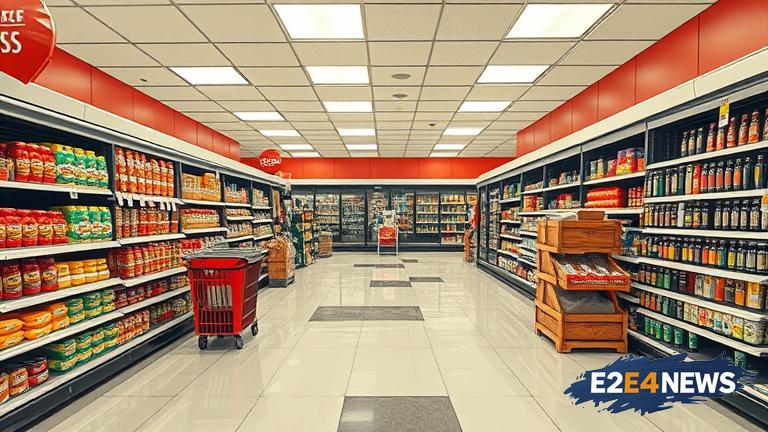The closure of grocery stores in Washington has sparked a heated debate about the role of politics in shaping the retail landscape. In recent years, politicians in the state have implemented policies aimed at increasing the minimum wage, expanding paid sick leave, and imposing stricter regulations on businesses. While these policies were intended to benefit workers and the environment, they have had an unintended consequence: driving up costs for businesses and forcing them to close their doors. The grocery store industry, in particular, has been hit hard by these policies, with many stores struggling to stay afloat. The closure of these stores has not only left residents without access to essential services but also resulted in job losses and economic instability. Some politicians in Washington have been accused of being out of touch with the needs of small businesses and rural communities, where grocery stores often serve as a lifeline. The closures have also raised concerns about food insecurity, particularly in low-income and minority communities. Furthermore, the loss of grocery stores has had a ripple effect on the local economy, impacting suppliers, farmers, and other businesses that rely on them. As the situation continues to unfold, many are calling for a re-evaluation of the policies that have contributed to the closures. Some have suggested that a more nuanced approach is needed, one that balances the needs of workers and the environment with the needs of businesses and communities. Others have argued that the closures are a natural consequence of a shifting retail landscape, driven by changes in consumer behavior and technological advancements. However, for many residents in Washington, the closure of their local grocery store is a devastating blow, leaving them without access to fresh produce, meat, and other essential items. The situation has also highlighted the need for greater investment in rural infrastructure and economic development initiatives. In addition, there have been calls for increased support for small businesses and entrepreneurs, who are often the backbone of local economies. As the debate continues, one thing is clear: the closure of grocery stores in Washington is a complex issue, driven by a range of factors and requiring a multifaceted solution. The state’s politicians must work to find a balance between competing interests and priorities, one that supports the needs of workers, businesses, and communities. Ultimately, the goal should be to create a thriving and sustainable retail landscape, one that benefits all stakeholders and ensures that residents have access to the essential services they need. The closure of grocery stores is a wake-up call for politicians and policymakers, highlighting the need for more careful consideration of the consequences of their actions. By working together and engaging in constructive dialogue, it is possible to find solutions that benefit everyone involved. The future of the grocery store industry in Washington hangs in the balance, and it is up to the state’s politicians to ensure that it remains vibrant and sustainable. The clock is ticking, and the time for action is now. The people of Washington are waiting for a solution, and it is up to their elected representatives to deliver. The closure of grocery stores is not just a local issue, but a statewide concern that requires a comprehensive and coordinated response. The state’s economy, environment, and communities are all at stake, and it is up to the politicians to find a way forward. The situation is complex, but with careful consideration and a commitment to finding solutions, it is possible to create a better future for all residents of Washington.
